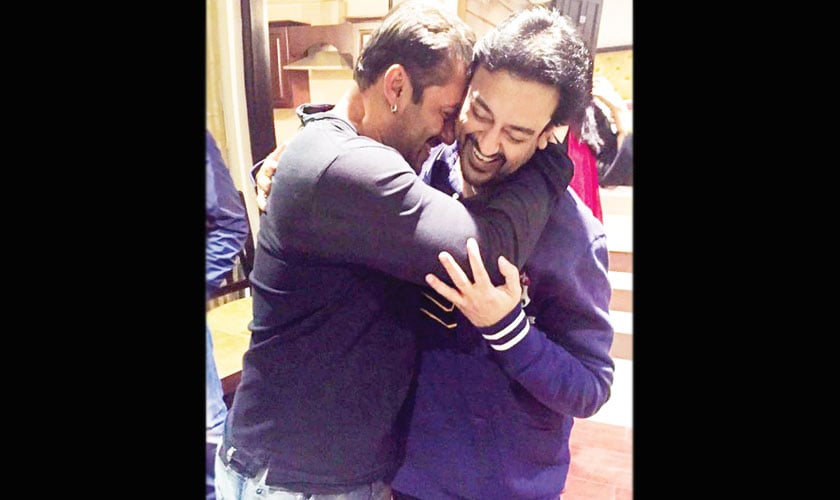Born in London, Adnan Sami Khan has also lived in the UAE and Canada as well as Pakistan, but today he considers Mumbai to be his hometown. In this rare interview with Fifi Haroon, which went on airwaves this weekend, the talented singer spoke about the reasons for applying for Indian citizenship and what kind of backlash he received.
MUSICMIX
In an exclusive interview with Fifi Haroon for BBC, Adnan Sami Khan
talks about some of the biggest controversies in his life.
Born in London, Adnan Sami Khan has also lived in the UAE and Canada as well as Pakistan, but today he considers Mumbai to be his hometown. In this rare interview with Fifi Haroon, which went on airwaves this weekend, the talented singer spoke about the reasons for applying for Indian citizenship and what kind of backlash he received.
“My home for the last 18 years is in Mumbai and this is where I feel most comfortable,” he said, when asked about where he feels at home. “People really love me there. Mumbai is very much my hometown.” This obviously led to the inevitable question of applying and getting Indian citizenship.
You’ve had to let go of many relationships when you took an Indian nationality. It offended a lot of your fans in Pakistan, Haroon asked.

Bro-mance boys: Adnan Sami Khan, seen here with superstar Salman Khan.
“It’s my personal right,” he responded very calmly. “God made one world and I have a right to go and live anywhere. Is God going to judge me by where I lived?”
“Secondly, I want to live where I get a chance to take my talent forward,” he continued. “Doctors go to Britain for their career. I’m a musician and I have to see where my talent can grow.”
He reflected on the series of unfortunate events that led to the decision”
“My Pakistani passport was up for renewal and it was being delayed,” he shared. “I was informed by some inside sources that my passport would not be renewed here (in Islamabad). It eventually expired and I was stateless. India gave me a residence permit; asylum. And then I applied for citizenship. I understand that people in Pakistan were hurt but judgment was passed on me for what happened without knowing why it happened. How was I treated? That was the provocative factor and not many people know about that.”
The conversation was diplomatically steered away from the topic and taken towards the recurring sufi element in his music. Your music is soulful, Haroon asked. “Do you connect with God via your music?
“Music is my language; it is my gift,” he replied. “I want to appreciate God in the language that I speak best. I want to communicate with God through my music, the strength which he has given me.”
Adnan Sami Khan was also asked about his romantic music, which has been strong over the years but isn’t heard enough of these days. Is his general lack of visibility because of the competition that has arisen?
“My work has always been very limited,” he replied. “I do less work but I want to do quality work.”
Towards the end of the interview Haroon steered the conversation towards the women in his life, his three marriages and his relationship with Zeba Bakhtiar, his first wife. She also referred to the fact that he was indeed a grandfather to his son Azaan’s child. Can people who were once husband and wife be friends, she asked with reference to Zeba Bakhtiar.
“Things happen. But then one compromises and moves on,” he smiled through his voice. “I respect Zeba; she was a part of my life and she is mother of my son.”
The interview ended with Khan’s reflection on his friendship with Salman Khan who he’s very close to. “Salim Khan is like a father to me.”
And conclusively, he was asked what he liked most about Pakistan’s growing music industry these days.
“In Pakistan, Rohail’s work on Coke Studio was remarkable,” he replied. “And later, Farida Khanum’s episode was so emotional. I even called her after watching it; I had tears in my eyes.”